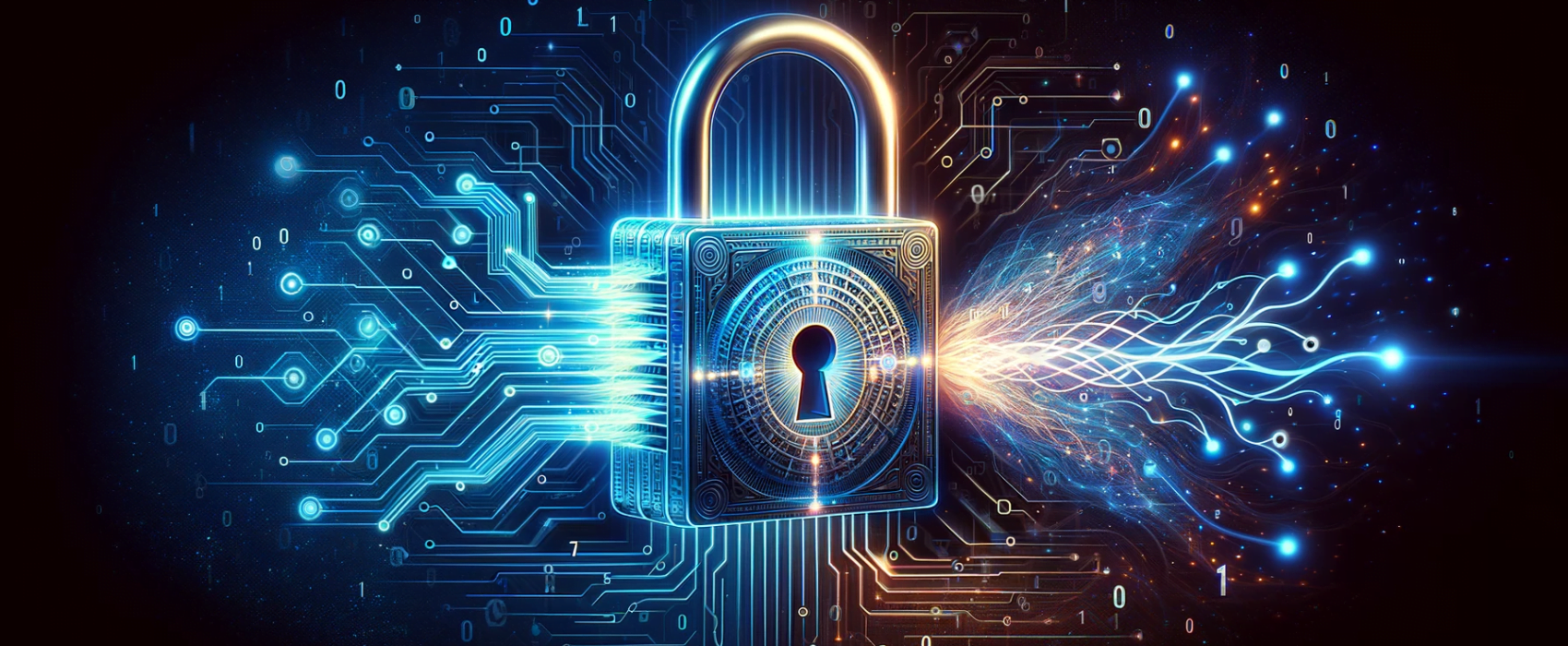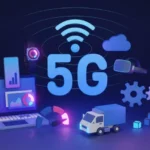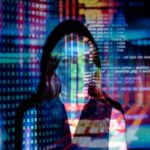Quantum cryptography is not just a technological advancement; it is a fundamental shift in how we think about security.
In today’s ever-evolving digital landscape, data security is a critical concern. As cyberattacks become more sophisticated, traditional encryption methods are increasingly vulnerable, particularly with the impending arrival of quantum computing. Enter this new frontier, a groundbreaking field that utilizes the principles of quantum mechanics to revolutionize secure communication. This emerging technology offers unhackable encryption and promises to protect sensitive information from even the most advanced attacks. In this blog, we will explore key concepts, historical development, applications, challenges, and the future of this innovation, the next frontier in information technology.
What is Quantum Cryptography?
This advanced method of securing communication leverages the unique properties of quantum mechanics. Unlike traditional encryption methods, which rely on mathematical algorithms, it uses quantum particles, such as photons, to create and distribute cryptographic keys. The core idea is to ensure that any attempt to eavesdrop on the communication will be detected due to the quantum principle of measurement disturbance. As a result, this method offers unparalleled security that is theoretically unbreakable.
Key Concept: Quantum Key Distribution (QKD)
The most significant application of this technology is Quantum Key Distribution (QKD). QKD allows two parties to share a cryptographic key that can be used to encrypt and decrypt messages. Quantum principles like the no-cloning theorem state that it’s impossible to replicate an unknown quantum state. As a result, any attempt by an eavesdropper to intercept the key alters the quantum state, alerting the legitimate parties to a breach. This ensures that any interference in the communication will be immediately detected, offering a secure exchange of information.
The Quantum Mechanics Behind It
This technology is built on fundamental principles of quantum mechanics:
- Superposition: Quantum particles, such as photons, can exist in multiple states at once until measured. This property enables secure communication, as the state of the particle collapses when observed.
- Entanglement: In this phenomenon, two quantum particles become linked, such that the state of one instantaneously influences the state of the other, regardless of distance. This is used in QKD to secure key distribution.
- Measurement Disturbance: When a quantum state is measured, it is altered, which helps detect any eavesdropping attempts. The mere act of trying to observe the quantum key will change its state, ensuring that any intrusion is immediately identified.
These properties make quantum cryptography incredibly robust compared to classical encryption techniques, offering a new level of data security in the digital world.

Historical Development: Pioneers of Quantum Cryptography
The concept was first introduced in the early 1980s, with notable contributions from researchers such as Charles Bennett and Gilles Brassard. In 1984, they developed the BB84 protocol, a key distribution scheme that remains one of the most widely used methods today. This protocol was based on earlier work by Stephen Wiesner on conjugate coding, which provided the theoretical foundation for modern encryption methods. Dive deeper into the BB84 protocol: A Comprehensive Review of the BB84 Protocol for Quantum Key Distribution.
Later, in the 1990s, Artur Ekert proposed using Bell’s inequalities to enhance QKD, further advancing the field. These foundational developments have laid the groundwork for today’s quantum communication technologies, driving innovation in data encryption.
Applications of Quantum Cryptography
As the technology continues to mature, it is finding applications in a variety of industries:
- Secure Financial Transactions: Financial institutions can use quantum cryptography to protect transactions from cyber threats, ensuring that sensitive data is secure during international wire transfers or cryptocurrency exchanges.
- Military Communications: Governments and defense organizations are beginning to explore quantum cryptography for securing classified communications, as it offers the highest level of protection against interception.
- Healthcare Data Security: With the rise of electronic health records (EHRs) and digital medical research, quantum cryptography can safeguard patient information and critical data from unauthorized access.
- Internet of Things (IoT): IoT devices are particularly vulnerable to cyberattacks. Quantum cryptography can be used to secure communications between IoT devices, ensuring that they remain protected in smart homes and industrial applications.
Advantages Over Classical Cryptography
- Unconditional Security: Unlike classical cryptography, which relies on the computational complexity of mathematical problems, quantum cryptography offers theoretical unbreakability, based on the fundamental laws of quantum physics.
- Eavesdropping Detection: QKD can immediately detect any attempt to intercept the quantum key, ensuring the integrity of the communication.
- Future-Proof: Quantum cryptography is resistant to the threats posed by quantum computers, making it a long-term solution for data security.
- Smaller Key Sizes: Quantum cryptography can achieve the same level of security with smaller key sizes compared to classical methods, thanks to the unique properties of quantum states.
- Enhanced Privacy: Quantum cryptography provides a higher level of privacy by preventing unauthorized access to transmitted data.
- Reduced Reliance on Mathematical Assumptions: Unlike classical cryptography, which relies on the computational difficulty of mathematical problems, quantum cryptography is based on fundamental physical laws, making it less susceptible to mathematical breakthroughs.
- Potential for New Applications: Quantum cryptography could enable new applications that require the highest level of security, such as secure voting systems, quantum-resistant digital signatures, and quantum-secured cloud computing.
Challenges and Limitations
- High Cost: The equipment required for implementing quantum cryptography can be expensive, limiting its widespread adoption.
- Distance Limitations: Quantum communication is currently limited by distance due to photon loss during transmission.
- Practical Implementation: Implementing quantum cryptography in real-world applications remains complex, requiring further research and development.
- Complexity: Requires specialized knowledge and expertise, making it more challenging to adopt compared to classical encryption methods.
- Interoperability: Ensuring compatibility between different quantum cryptographic systems can be difficult, as there may be variations in protocols and hardware.
- Infrastructure Requirements: Deploying quantum cryptographic infrastructure may require significant investments in new equipment and networks.

Future Prospects: Preparing for the Quantum Age
As the specter of quantum computing looms larger, cryptography emerges as a beacon of hope for safeguarding our digital future. The threat of machines breaking traditional encryption highlights the urgent need for unbreakable security solutions.
Quantum cryptography, with its roots in the enigmatic laws of quantum mechanics, offers a compelling answer. By leveraging the unique properties of particles, this technology promises to revolutionize secure communication. Its ability to detect eavesdropping attempts and provide unconditional security makes it a formidable defense against both present and future cyber threats.
Researchers worldwide are racing to overcome the challenges that hinder its widespread adoption. One significant hurdle is the limited transmission distance of quantum key distribution (QKD). However, advancements in quantum repeaters, devices that can extend the reach of signals, hold the promise of overcoming this limitation.
Conclusion: Embracing the Power of Quantum Cryptography
In the face of evolving cyber threats, quantum cryptography offers a beacon of hope for the future of data security. By harnessing the laws of quantum mechanics, this cutting-edge technology ensures that sensitive information remains protected from even the most advanced cyberattacks. As quantum technology continues to develop, we can expect to see this encryption integrated into mainstream communication networks, securing our digital world for generations to come.
Intrigued by the future of secure communication? Myceliumweb.com will continue to explore the evolving landscape of quantum cryptography and its impact on cybersecurity. Stay tuned!


















